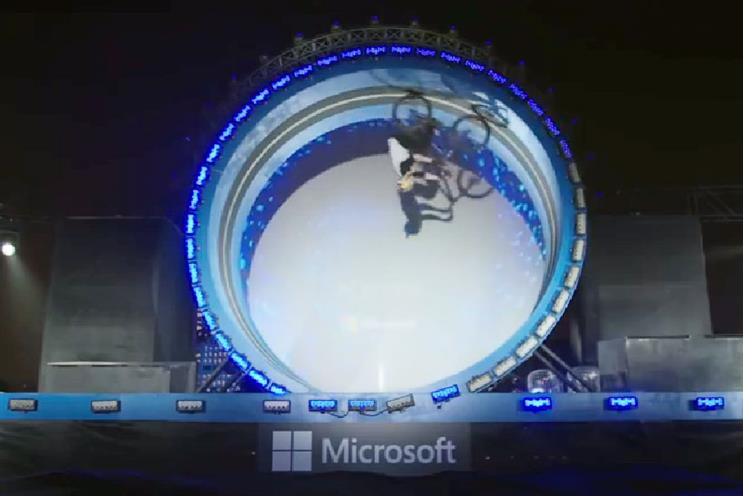
Extreme sports have long provided brands with an engaging creative backdrop to help market their products; Samsung has again aligned itself with the highly aspirational lifestyle of professional surfers by sponsoring this year’s World Surf League's 2015 Championship competition under the Samsung Galaxy brand.
The reality is that most consumers don’t aspire to riding a 60 foot wave, but they do aspire to having a sense of freedom that a surf lifestyle evokes
The wow factor
For many years, brands' typical approach to tie-ins with extreme sports has been to try and achieve an attention-grabbing 'wow' factor. Take Danny Macaskill's recent loop the loop on the River Thames for Nokia Lumia, for example.
Brands can certainly inspire reactions of awe and admiration when they're allied with action sports in this way. But it's difficult for consumer engagement to be more than fleeting or superficial when the 'wow' impact is only short term.
Simply trying to thrill audiences with headline-grabbing ‘extreme’ feats means brands are only dipping their toes in the water when it comes to achieving a more enduring emotional engagement with consumers.
Extreme sports are often referred to as free or soul sports because of the profound emotions and passions that lie beneath the 'wow' factor. Marketers will have a better chance of creating deeper brand associations by tapping into the emotional nuances behind all the danger and the adrenaline – and engaging with consumers by conveying experiences that people can genuinely relate to.
The reality is that most consumers don’t aspire to riding a 60 foot wave, but they do aspire to having a sense of freedom that a surf lifestyle evokes.
The surf brands themselves recognise this. They engage professional ‘free surfers’ to travel the globe and ride uncrowded waves away from attention-grabbing competitions. The resulting content is not only compelling but also authentic, and could provide brands with inspiration for emotion-led consumer campaigns.
The pursuit of freedom
The emergence of surf brands, like Finisterre, the Cold Water Surf specialists, further tap into people’s desire for authenticity and substance. They are inspiring surfers and non-surfers alike with the romantic but achievable notion of enduring bitterly cold water in pursuit of a true feeling of liberation.
The fact that non-surfers are engaging with the Finisterre brand story is perhaps reflective of a wider cultural trend, where many of us are reassessing the balance of wealth with happiness following the global financial crisis.
For example, Volvo’s "Seek Feeling" TV ad demonstrates how brands can leverage soul sports without jaw-dropping stunts. This beautifully-shot, highly sensory film shows a girl on a surf board at one with the water, thus tapping into the deeper emotional aspects of free sports.
And you don’t even have to focus on the extreme sport itself.
Nikon recently crafted a series of content with surf photographer Clarke Little about his love of the ocean and the beauty of waves, and his leap of faith to follow his dreams. In doing so, Nikon created content that consumers could relate to, be inspired by, and consequently associate that uplifting feeling with the brand.
So, whether you’re looking to engage the participants, or inspire broader audiences, the opportunity for brands is to also think in terms of tapping into the enduring power of the lifestyle, rather than just the fleeting thrill of the event.
Recommended


.jpg)


.jpg)